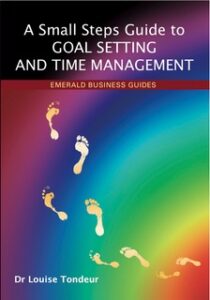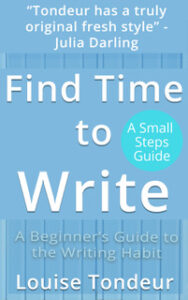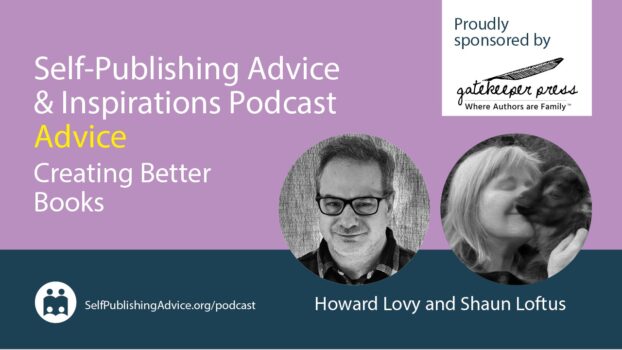
Louise Tondeur helps you find time to write
Wouldn't all authors benefit from more writing time in their day? Open University Creative Writing tutor and author Louise Tondeur offer top tips to help you manage and expand your writing time, to boost your productivity and personal satisfaction with your writing life.
How to Find Time to Write

Louise Tondeur's book on Time Management
I’ll let you into a secret: I wrote a book on time management in 2012, not because I’m an expert (or a ‘guru’ thank goodness), but because I wanted to learn about time management myself, and the best way to do that was to write about it.
Having done the research, I’m here to tell you that time management isn’t a pipe dream, and, contrary to popular belief, it’s not uncreative. Time management techniques don’t take too long to learn either.
Hofstadter's Law
Hofstadter's Law states that we are terrible at estimating how long it will take to do something. Try answering these two questions, and hopefully you’ll see what I mean:
- How long would it take you to cook a roast dinner?
- How long did it take you to cook a roast dinner last time you did it?
If a roast dinners don’t chime with you, pick something else that involves lots of processes.
Don’t forget that you have a life
I bet the second answer is a) longer and b) more accurate. Partly this is because when we answer question two, we take actual context into account: I had to entertain the kids at the same time, the neighbour showed up unexpectedly, I forgot the peas and had to go out to the shops, I forgot to turn the oven on, the dessert I planned was too complicated and I didn’t read the recipe properly because I was half-watching the kids and half-listening to the neighbour tell me about her divorce.
Here’s the thing: contexts affects us all the time.
So how do we apply this insight to the writing process? First of all, the most reliable way of working out how long it will take you to do something (or write something) is to base your estimate on something you’ve done (or written) before. If you find yourself exasperated and not knowing when you are going to fit in time to write, the following technique is for you.
Tracking Your Time

(Image by Sanah Suvarna via Unsplash.com)
Time tracking is a technique recommended by productivity experts but not often applied to the creative life. It involves deliberately interrupting yourself to ‘track’ your activities and how long they take. The exacting version means setting a timer for an hour at a time and recording what you were doing each time it goes off. Do this for a week and you’ll drive yourself and everyone else crazy.
Instead, I suggest using a dedicated notebook and when you naturally take breaks in your day (at meal times or tea breaks for example), jot down what you were doing before the break. Crucially, do this for everything you do and track your writing time too.
What to include
Remember I said context is important? When you note what you were doing also quickly jot down where you did it and your energy level at the time. Also, jot down whether you were interrupted and how long the interruption took. It's easy to forget that you spent an hour online buying books or on social media (I’m speaking from personal experience) when you could have been working on your short story.
Here’s What You’ll Discover
Track your time over a period that has a natural rhythm for you, and for a maximum of five days out of seven. If you only manage three that will still give you something to work with, and it will help you to:
- Identify your time drains.
- Sort out or make time for regular interruptions.
- Give up old habits that you could replace with a writing session.
- Work out whether you have any transition time that you could use to write – time spent on a train, for example, or in a café at lunchtime.
Scheduling – know when you’re going to turn up
It’s amazing what a difference scheduling makes, even though it sounds so simple. Once you’ve time tracked and had a look at the results, decide which of these best describe you:
- You want to start turning up to write regularly.
- You want to finish a longer project.
Schedule your writing in the same way that you would schedule turning up to a job.
Using the results of tracking your time, create some dedicated slots for writing. This might be once a week, it might be three times, it might be every morning at 5am. The most important thing is that it is based on your life. I can’t tell you when your optimal writing time is, but you can discover it for yourself. Remember to take into account your energy levels and where you’re going to write.
You want to start turning up regularly
Basics first: have your space set up. If you don’t have a dedicated space, have a bag packed ready to go, or one place to keep your stuff.
Have something to turn up to.
Next try establishing a writing habit over three weeks. It doesn’t matter what you write during this experiment as long as you are generating words.
You want to finish a longer project
If you are working on a longer project, wouldn’t it be good to take some of the mystique out the writing process? Knowing how long it will take you to write something, and scheduling the time to do it, does not make the process less creative. In fact, it makes it more creative, because you get what you focus on. You’re more likely to give yourself the space to get on with it. So, I suggest doing some maths:
- Work out how long it takes you to write and edit 1,000 words. Base this on the last time you did it. (Remember the roast dinner example above?)
- Work out how long you want your project to be. (Base this on the last time you did it or on work in a similar genre.)
- Based on the time tracking exercise, estimate how long it will take to finish your project.
Further Reading: My Favourite Management Techniques
Here are my favourite time management resources – the ones that have been most useful to me as I’ve carved out time to write – with some links.
- The Pomodoro Technique
- Cal Newport’s book Deep Work
- The ‘Not To Do’ List
- Batching
- David Allen’s book Getting Things Done
OVER TO YOU What practices have helped you increase your writing time? We'd love to hear about them!
#Indieauthors - like to find more time to write? Don't miss this very practical post by @LouiseTondeur, tailor-made to suit your own life and circumstances. #ww #writing Click To TweetOTHER GREAT WRITING ADVICE POSTS
From the ALLi Author Advice Center Archive





